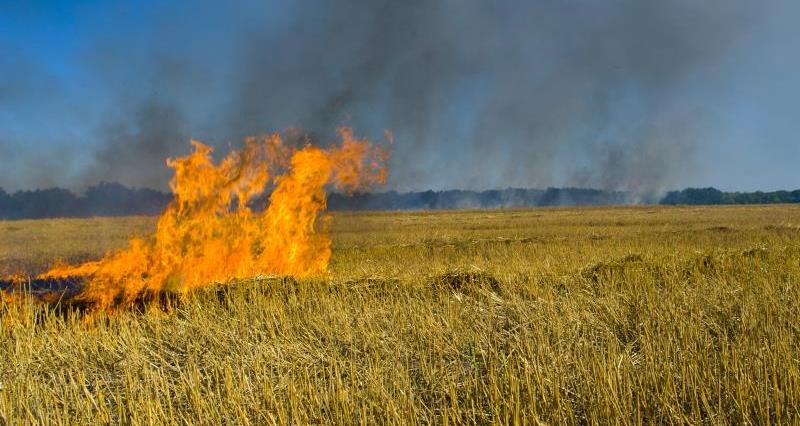With our sector now fully immersed in one of the most important seasons of our calendar year, I’m sharing what myself and other farmers are doing to reduce fire risk to our operations moving forwards.
Plan ahead
Most of us have emergency plans for harvest time, but make sure fire risk is included.
There are many ways to prepare these and it may be prudent to get in touch with your local fire service to talk through any emergency plans. In this article, Jason Lawley, deputy divisional commander of Lincolnshire Fire Service, talks about how to assess fire risks. Read: How to prevent combine fires during harvest time
Some farmers have also used the What3Words app to record locations for each field gateway – this is a great idea to help emergency services locate a field in the event of an emergency, but just one way you can prepare ahead of further harvesting and in-field work.
Prepare machinery
I make sure I keep machinery serviced and well maintained, but as you’re all aware accidents still happen so keeping fire extinguishers on the combine, and tractors where possible, is important.
Some farmers in high-risk areas have kept any spare tractors with cultivators attached and ready to go where possible – just in case you need to urgently establish a fire break. However please do remain safe out there, in the event of an emergency always call the fire brigade.
On-farm water supplies can be used to support emergency services, with either fire services carrying purpose-built adaptors for water bowers or slurry tankers to access water or using makeshift pools/dams.
Keeping bowsers etc. full of water and ready to go is a great idea to support emergency services in their work, especially when harvesting fields located some distance from fire hydrants.
For more information on how to help the fire service access on-farm water supplies, see: How to help the fire service access on-farm water supplies
In the field
Harvesting and baling alongside other fieldwork can create sparks in field, so if temperatures soar again, I will be altering my harvest hours to minimise risks – whether that’s harvesting later at night or early in the morning.
I’ll be looking at my combine’s header height, in stony fields particularly where the risk of sparks is high. I will be assessing the need to raise my combine header height slightly to prevent stone sparks from the combine. This is especially important where straw will be chopped, but for me I’ll be looking at this for high-risk fields, even where baling takes place, just to keep straw off the ground and away from stones for my baling contractors.
I may even look to reassess my combine speed where possible to reduce spark risk, but this will be at each farm’s discretion. Risk is different on every farm and it is down to us as farmers to balance the factors involved.
One thing I would recommend all farmers to do is to look at where you plan to store bales on farm, making sure they’re away from the public, where possible, to reduce any additional risk.
And finally at the end of the day I make sure I blow down the combine properly, even on a damp day. Where chaff builds up, this increases the fire “fuel load” heightening the fire risk.
Needless to say I wish you all a safe rest of harvest and drilling season. Now has never been more important to bring home the harvest safely, so let’s make sure we minimise risks and stay vigilant.



